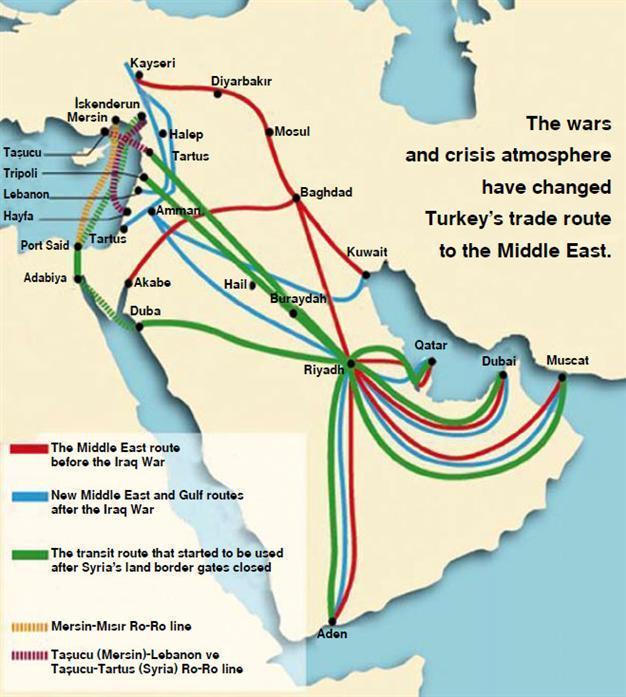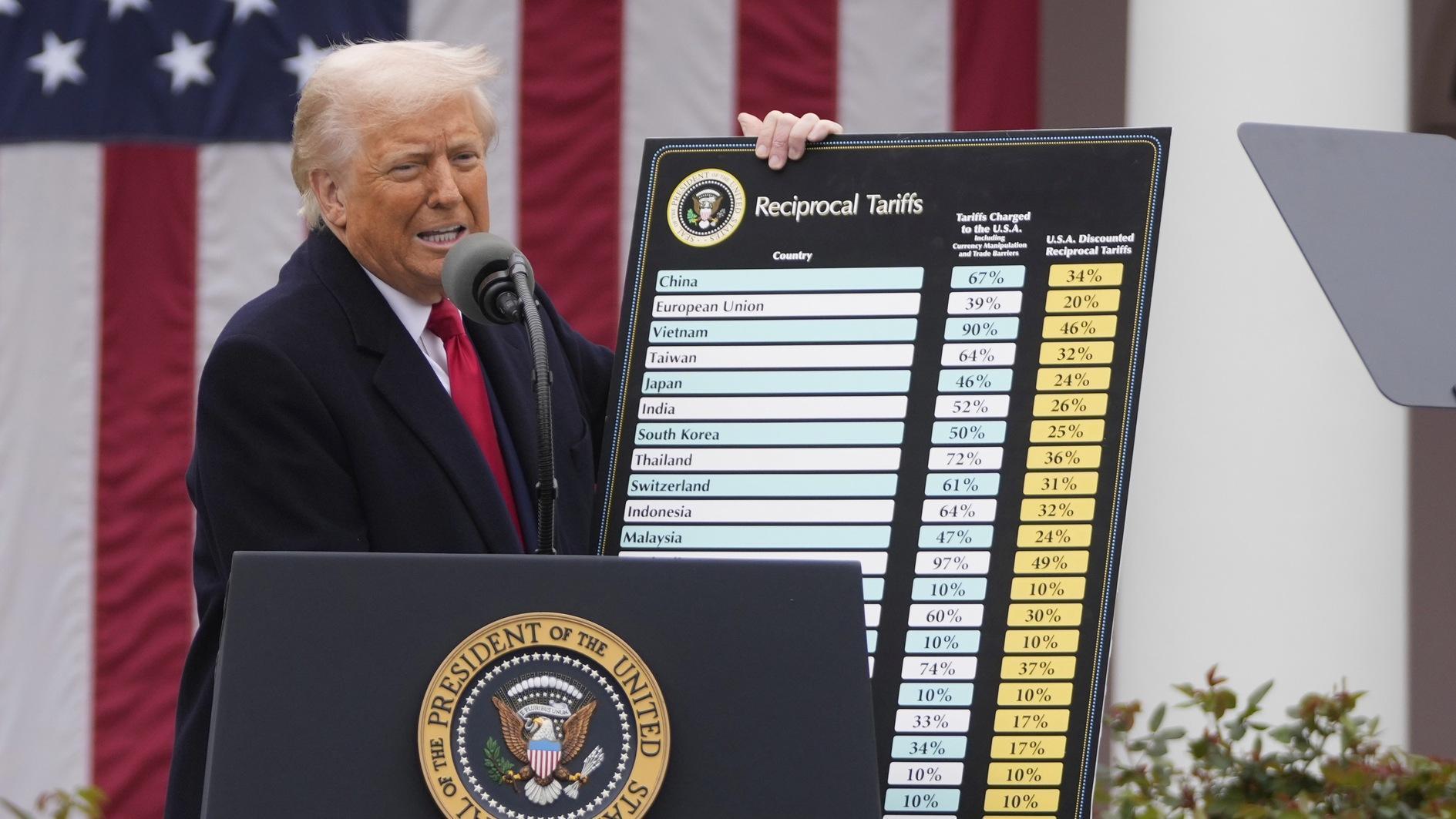Turkish exports via Egypt continue after coup d’etat
ISTANBUL - Hürriyet
 Turkish goods have continued to be delivered to the Gulf countries through Egypt without interruption even after the coup d’état in the country.
Turkish goods have continued to be delivered to the Gulf countries through Egypt without interruption even after the coup d’état in the country. While foreign trade in the Middle East was made via Syria in the last two decades, the routes have been shifted to Egypt due to civil war in Syria.
The Middle Eastern and Gulf countries became one of the most important markets for Turkey’s exports, particularly after economic crisis hit the European Union. Turkish good deliveries by cargo trucks, which started to be made via Egypt due to Syrian unrest, continue to arrive to Gulf countries despite the coup d’état in Egypt, Ekonomist, a Turkish magazine, reported. The new trade route that was opened during the rule of ousted president Mohamed Morsi and the Muslim Brotherhood is still using Turkish cargo trucks under the rule of new President Abdel Fattah el-Sisi, who came to power after the coup d’etat in July. While the Turkish government disapproves of and criticized the coup d’état, while defending the rule of Morsi, Turkish exports to Gulf countries worth $10 billion were not halted and continue via Egyptian routes that are being protected by the Egyptian army.
New routes sought
Following the Arab Spring in 2011 and the beginning of the unrest in Syria, Turkey had to seek new trade routes for its exports to the Middle East and Gulf countries. Particularly after political tension arose between Syrian president Bashar al-Assad’s regime and the Turkish government, Turkey started to look for alternative routes to Gulf countries that have high trade potential.
After President Morsi and the Muslim Brotherhood came to power in Egypt in June 2012, new opportunities opened for Turkish exporters. According to the plan, Turkish cargo trucks that departed from İskenderun and Mersin by RO-RO services arrived first at Port Said in Egypt and would then be transported to the Red Sea, accompanied by military convoy. The cargo trucks crossed into Saudi Arabia from the Red Sea and then onto the Gulf countries. This new route raised the cost by 40 percent when compared to the Syrian route. The delivery duration also rose to 25 days from 12 days. Despite these, the new route opened the door of Africa to Turkey.
The trade routes had been changed during first Gulf war period in 2011. The foreign trade with the Middle East and Gulf countries, which had been made via Baghdad, shifted to Syria after the United States’ intervention in Iraq. While bilateral relations between Turkey and Syria developed in the years after 2000, Turkey’s exports to Africa and Gulf countries via Syria surged. The number of transports reached 120,000 a year in this period, according to the number revealed by the Istanbul-based International Transporters Association (UND). Turkey’s exports to Syria rose from $267 million in 2002 to $1.5 billion in 2011, as exports to Gulf countries reached $6 billion.
















